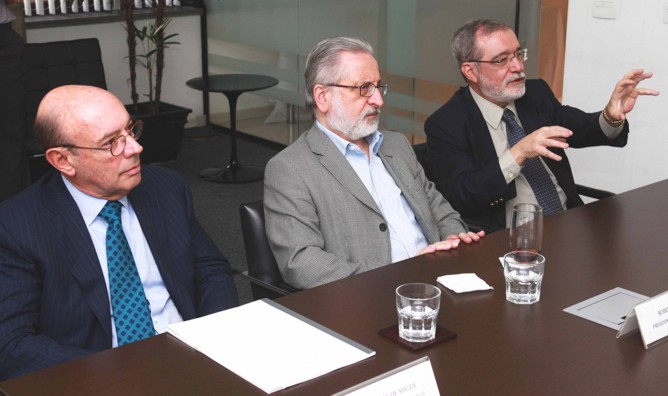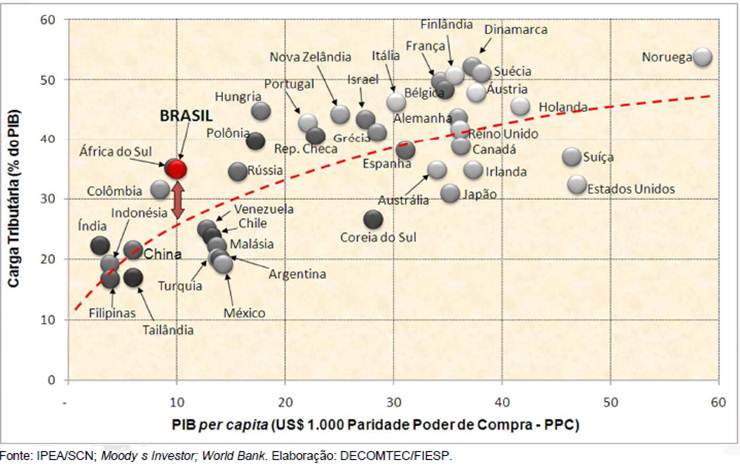Discussing tax reform is almost like talking about the climate: in both cases, it is common to see that independent factors (but that sometimes interact with each other) often contribute to unexpected results. In this sense, this article proposes a brief reflection on the aforementioned “unpredictability of the result” being, perhaps, a relevant obstacle to the advance of reform proposals in recent decades.
In general, the reasoning is as follows: if someone decides to participate in a game, but suspects that their opponent may act unfairly, it would be better, for those who suspect, to (i) know the rules minimally and, thus, increase the your chance to identify or prevent an eventual opponent's ruse, or (ii) not worry about details, and trust that you will be able to identify and react appropriately, if and when your opponent is really disloyal?
Or, from another perspective, if tax authorities and taxpayers are suspicious of each other - this because they think tax authorities are more concerned with collecting than applying the law fairly and correctly, and the other because they think taxpayers distort the rules for escape payment due - then perhaps maintaining a bad but reasonably well-known system is, after all, a less risky choice than implementing a new system that may even be better, but whose conceptual deficiencies and interaction between the rules will remain , for a time, little known.
Obviously, considering that tax authorities and taxpayers always behave as adversaries, and that they presuppose each other's disloyalty, is not a credible, or even republican, premise, because tax authorities and taxpayers often cooperate and understand each other, especially when the subject is not. the collection of taxes itself.
However, the point that we seek to make in this text is different, as it is much more linked to the difficulty of discussing reforms in an environment of reasonable mutual distrust, in which the maintenance of a bad, but still manageable, status quo can be perceived as something preferable to a set of rules with unknown practical application.
Such a situation, if true, would probably be aggravated by the usual ambiguity (and consequent difficulty in interpretation) that usually permeates tax rules, as well as by the lack of certainty regarding the final result of a reform, especially when considering (i) the high potential for changes that a text may undergo during the legislative process, and (ii) the “adjustments and corrections” that often appear in non-legal acts such as decrees, normative instructions, interpretative acts, etc.
Thus, it is possible that the construction of a viable tax reform proposal requires something beyond the traditional referral to the National Congress of a pile of new constitutional rules, thought by few experts in the enclosure of their offices, and which are sometimes as ambiguous as those rules to clarify or adjust.
Perhaps, the construction of a proposal with a real chance of approval requires a broader and more collaborative effort, to be undertaken in an environment of transparency and publicity, possibly through public consultations (as in the case of several regulatory agencies regarding standards) techniques that edit), in which tax authorities and taxpayers have the opportunity to analyze and effectively discuss not only the constitutional matrix, but also drafts of laws, decrees, normative instructions and interpretative acts that will regulate the practical application of the new constitutional provisions that if you want to approve.
Of course, the end result of a tax reform proposal built in this context would, like the climate, be essentially unpredictable, at least at first.
However, regardless of the text to be produced, the installation of an appropriate forum for holding debates that could bring tax authorities and taxpayers together would, in isolation, already be an important measure to mitigate some of the uncertainties and suspicions that seem to contribute to the maintenance of the status quo .
Furthermore, in times of laws that favor transparency in dealing with public and private agents, this would be, at least, a good start.
Luiz Roberto Peroba Barbosa he is a lawyer, a partner in the tax area of Pinheiro Neto Advogados, and members of the Tax Studies Center of Fundação Getúlio Vargas.
Renato Caumo he is a lawyer, associate in the tax area of Pinheiro Neto Advogados, and a member of the Tax Studies Center of the Getúlio Vargas Foundation.
Source: Legal Consultant Portal





